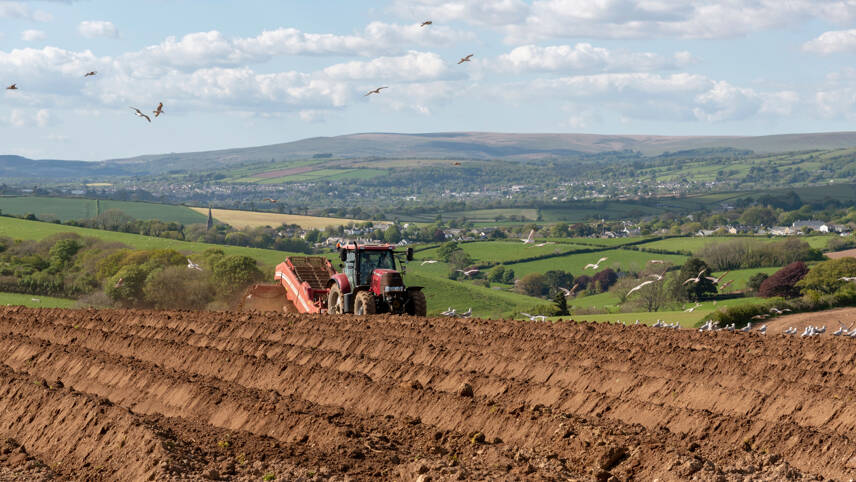Register for free and continue reading
Join our growing army of changemakers and get unlimited access to our premium content

The UK Centre for Ecology and Hydrology this week stated that much of the UK could experience drought conditions until the autumn, with rainfall and river levels set to remain low in the coming months – particularly in southern and central England.
According to the Met Office, the southeast of England has been the most affected, with 144 days with little or no rain of the 221 this year. South East Water and Southern Water have already confirmed hosepipe bans in response, with Thames Water expected to do so soon. Welsh Water has also taken this measure.
For households, this means that sprinklers and paddling pools are off the agenda. For food systems, the impact is likely to be far more serious.
Heatwaves in geographies including mainland Europe and India have already reduced yields for certain crops, including wheat, olives and rice. Russia’s war in Ukraine has also posed a major threat to global food security in 2022, disrupting supply chains for sunflower oil, wheat and fertilizer. In the UK, the National Farmers Union (NFU) is warning that the worst is still to come and that policymakers are not yet responding adequately.
Speaking to the Guardian this week, NFU president Minette Batters said: “Our members are very concerned at the moment, the situation with potatoes is really serious, they are a very water-hungry crop, they need access to water. Right now we just don’t have enough water for our potatoes, carrots, and lettuces. And who knows what else if these dry conditions carry on.”
Batters is calling on both Conservative Party leadership candidates, Liz Truss and Rishi Sunak, to outline their plans for food security and making the UK’s water infrastructure more resilient. Prime Minister Boris Johnson is currently on holiday and Parliament is in recess. Batters also pointed the finger at water companies, stating that more should be done to stop leaks and discourage wastage at other parts of the value chain.
Additionally, Batters floated the idea of incentives for farmers to save and store water. Organic vegetable farming company Riverford revealed to the BBC this week that its reservoirs have already run dry and called the current drought “the worst in 35 years”.
Defra has stated that it will “continue to work closely with water companies and the Environment Agency to protect public supplies, the environment and critical sectors that depend on water, including farmers”. It has reassured businesses that each UK region already has a credible drought plan.
(Food) systems change
The situation places further pressure on the Government to bring forward joined-up, credible measures to improve the sustainability and resilience of food systems.
June saw the Government publishing its Food Strategy, the first in a generation. The reaction was one of disappointment, with the majority of recommendations made by Henry Dimbleby, the expert leading the review of existing policy, not taken on board. Groups operating in agriculture, climate action, nature, nutrition and the civil society spaces all expressed concerns.
The Landworkers’ Alliance (LWA) was among the critics, calling the plans “the policy equivalent of junk food”.
Now, the LWA has published a new set of recommendations for developing resilient and sustainable food systems in rural parts of the UK, in partnership with the Countryside and Community Research Institute.
The research found that many LWA members are not classed at conventional farmers, despite being growers, foresters and land-based workers that are focused on public goods listed under the National Food Strategy. Additionally, LWA members rarely employ more than 10 people, making them micro businesses.
The research outlines a set of recommendations to help micro businesses create sustainable processes that would help with UK crop and food production and land management.
Dr Charlotte Chivers, lead author of the report, said: “Given the unique make-up of these micro businesses which aren’t traditional farmers or food or catering businesses, this group fall between many policy stools. At a time of intense debate on how to feed our nation in the wake of the rising cost of living and climate change, their contribution to sustainable, local and healthy food production must be harnessed.
“Our recommendations cover a breadth of measures including eligibility for agri-environment schemes for smaller farms and holdings, provision of affordable rented homes for workers and availability of machinery for small-scale agriculture and food processing and we hope they are a step towards providing the support they need to flourish.”
The research found that most of these microbusinesses operated a “small portfolio of enterprises” that diversified across the food system, including processing and retailing their own products rather than selling the up the value chain.
Additionally, these businesses were more focused on social and environmental aspects as their core business purpose, rather than solely existing to make profits. Volunteering is therefore crucial to help these businesses improve.
The research cites finance, lack of market access and insufficient business support as primary challenges for this sector, warning that existing policies and agri-sector schemes are failing to account for this crucial part of the UK’s food system.
The research is therefore designed to offer support to these microbusinesses to help develop rural food systems in a sustainable manner, but that policy and finance need to be unlocked and funnelled into the sector.
Through the lens of the heatwaves and looming drought, policymakers have been urged to rethink the entire value chain of the national food system in a way that boosts indigenous outputs in a way that accounts for sustainable land management. Doing so may deliver an economic boon for the UK’s rural markets while providing more access to food during the cost-of-living crisis.


Please login or Register to leave a comment.